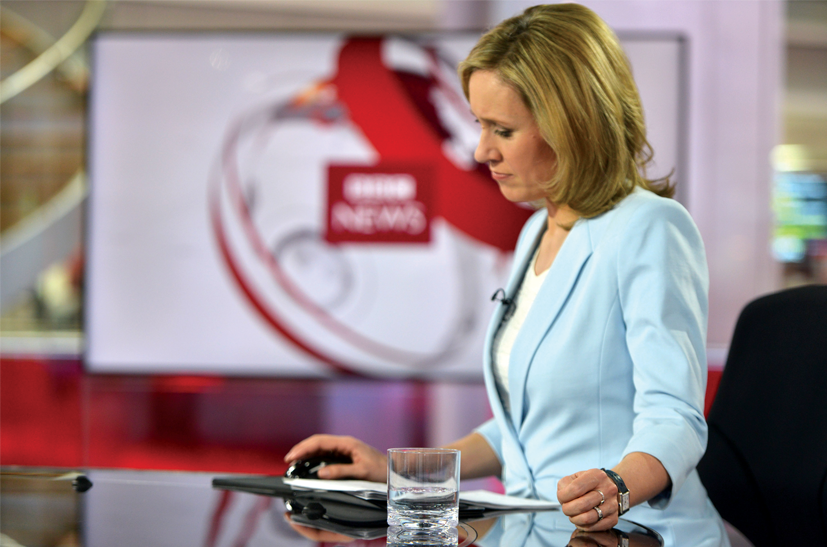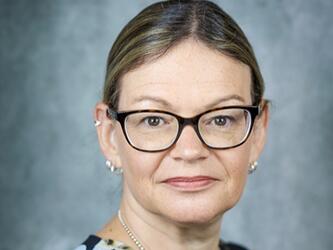Points of view

Much has changed in the media landscape in 15 years, as James Holden, director of marketing and audiences for BBC News, has seen first hand. During his time at the public service broadcaster he has witnessed how research has become increasingly complicated – and data-heavy – since the digital world exploded.
“There’s a veritable tsunami of information now,” he says. “You can bombard people with data. Before, it was TV and radio, and we were dealing with currencies that were less open to interpretation.”
Yet Holden points out that the research challenge at the BBC remains the same now as it was in 2000, when he first joined: to provide an audience context to aid strategic, editorial and tactical decisions. He believes that a focus on the sheer pace of change can be dangerous and it’s important not to underestimate the impact of it all.
“Sometimes people jump on the next big thing, but they don’t see the actual shift in consumer behaviour. For instance, around a third of UK adults use a tablet. These have really changed how audiences watch television. People are using their tablets to enhance their viewing and to create new viewing occasions,” he explains.
Almost more interesting, in Holden’s view, is the rise of mobile on a global level and the varying ways in which channels are used in different countries. To this end, the BBC operates an international panel, Global Minds, made up of 10,000 people from more than 180 countries. This panel provides insight that is fed into editorial, design and strategic decisions made across BBC World Service Group.
Last year, BBC News also ran four pilots on WhatsApp, WeChat, BBM and MXit to understand how audiences in specific countries are using such ‘chat apps’ for news consumption and discussion of events. “Many countries are truly digital-first from a research and marketing point of view, and are using mobile in some very different ways; for instance, private chat-apps groups are discussing news away from prying eyes,” Holden says, pointing out that social, political, cultural – and, of course, technological – factors make for very different research environments.
Personalising content
When he first started at the BBC, Holden says online was a “tiny” fraction of his remit, and the broadcaster had only a fledgling analytics team. It is currently looking to significantly ramp up its investment in data analytics and is working on a large-scale personalisation project, known as My BBC, to deliver personalised content on a massive scale.
“Technology is offering huge opportunities,” he says, pointing out that My BBC is about product curation. He describes the project as a “huge” investment for the media giant, which is so often under attack for potentially under-serving segments of its audience.
“Digital media enables choice and personalisation like never before,” Holden says. “It’s an opportunity for many of our audiences to find more of our content that they may not be aware of, and may really like.”
Various tools are being harnessed to help with this wider goal of greater audience insight provision and targeting. The Audiences Portal, for instance, was set up 10 years ago, but has grown massively, according to Holden. It is now used by thousands of people across the BBC every week to understand how their programme or service is performing, and to get direct audience feedback. It also provides insight into audience behaviours, says Holden, and shows that trust and appreciation are major considerations for the public service broadcaster, which cannot base decisions on eyeballs alone.
Audience appreciation
“We need a nuanced understanding,” Holden explains. “We need to be seen as trustworthy, impartial and high-quality.” He also claims that the audiences function has been at the heart of the charter review, and that he has found that “reassuring”.
An ongoing, daily panel – which delivers scores for audience appreciation – was set up during Chris Mundy’s tenure as director of audiences at the BBC during the 2000s. Now managing director at Clearcast, the organisation that pre-approves UK TV advertising, Mundy explains that the use of an online panel was seen as controversial at the time. “There were questions around whether or not this was representative,” he says. Clearly, the world has moved on.
Mundy believes the greatest challenge today, in terms of market research more broadly, is that it’s not as fashionable as big data. He also thinks the assumption that everything can be measured is dangerous. “Just look at Tesco and the troubles it faces, despite having the ClubCard. Pure quant data is clearly not the answer,” he says. “You need to have a rounded view, and as a researcher you need to make an impact.”
For that very reason, Holden says the BBC has focused particularly on training around data visualisation and storytelling skills for its audiences team, to ensure it can communicate confidently, and provide compelling justification for action when insights are uncovered. “There is no lack of data, but insight is something else,” he says. “In that sense, the challenge has not actually changed in 30 years.”
The BBC-wide audiences function went through a roster process late last year – a process that happens roughly every four years and which is designed to ensure its agencies are offering the right blend of skills in today’s world.
Like Mundy, Holden notes an increased focus on quantitative data, and says the BBC is now looking for a broader range of skills than it would have been 10 years ago – to encompass areas such as digital analytics expertise, CRM knowledge, social media marketing skills and second-screen insights.
Jonathan Lakin, CEO of technology company Intent HQ – an audience intelligence platform that focuses on social and behavioural activity – adds that a key challenge for the media lies in ensuring it leverages the right tools and metrics for measurement. “The focus, historically, has not been on the audience per se, but on driving clicks,” he says. He believes that this is changing, if slowly, and that it needs to.
And Jacky Parsons, a director at agency Sense Worldwide, which has worked with media owners such as ITV and Discovery, points out that while the packaged goods world is streets ahead of the media world in terms of building customer segmentations based on occasion or need, she believes there will be a fundamental shift in approach from media organisations. “There’s a trend now toward looking beyond demographics,” she says, “at shared needs, interests and attitudes. These are sometimes called ‘moods and modes’, and they can be a challenge for people to measure.”
It is perhaps unsurprising, then, that Nick North was hired last September to fill the position of director of audiences at the BBC, after Holden moved into the director of audiences and marketing role at BBC News – an international role. As former global lead for media and entertainment at GfK, as well as head of innovation in audience measurement, North has focused on this area of audience measurement for some time.
Engagement and inspiration
North believes that media owners in general, and the BBC in particular – because of its public service remit – need to focus on “engagement and inspiration”. He notes, too, that the recent roster highlighted the much broader range of skills needed in today’s market research world, with a number of new agencies having made the - extensive – list.
He also points out that the BBC’s appreciation panel can now be “supercharged” thanks to the potential to integrate social media monitoring tools. North stresses the need for enhanced analytics capabilities, but not at the expense of more traditional market research techniques that can help to explain the ‘why’ behind certain decisions or actions. Observational, ethnographic techniques, he adds, can help to paint an accurate picture of how audiences navigate toward content, how they scroll and find it.
“There’s a danger in getting too caught up in numbers of ‘tweets’ or ‘likes’. It’s very important to know what you’re trying to measure,” he argues. “Volume is often not enough. Consider sentiment analysis and be conscious that word-of-mouth is one of the most powerful tools driving future viewing or listening. Remember, too, that the vast majority of word-of-mouth is offline. Online does not represent the whole audience.”
That said, the recent 30th anniversary of EastEnders this February generated a huge amount of activity on social media, thanks in part to what North describes as a “big reveal” of who killed character Lucy Beale. The online conversation underscored the growing importance of dual- or multi-screening behaviour, and the often symbiotic relationship between television and social media.
“Our measurement of the episode’s performance was truly multi-platform,” says North, who describes the level of social engagement as outstanding, claiming that it was the most tweeted about episode of a UK soap.
New opportunities
“It demonstrates how important some of our biggest brands are across social media,” he adds. “It is about us pointing the way towards new opportunities. I think it demonstrates the scale of what can be achieved and how one amplifies the other when it comes to broadcast reach and social media.”
While post-event reporting and analysis is a significant part of what the BBC’s insight specialists are responsible for – in part because of the public service broadcaster’s need to be accountable – North says that, increasingly, the focus lies in supporting content creators to feed in ‘inspiration’, as opposed to analysis post-broadcast.
North also says the My BBC personalisation project is one of the most exciting areas of focus for the BBC’s audiences function at the moment. “We’ll start to see how consumption behaviour can influence which headlines are brought to the surface,” he says. “We could effectively offer a million different experiences of the BBC, not just one homogenous experience. It’s an opportunity to engage directly.”
Meanwhile, Holden – with his news hat on – adds that plurality of news provision is a “good thing”. He says he’s not intimidated by the range of online news sources available today and argues that the role of the BBC is to offer trusted information, depth and breadth. He claims that audiences trust the BBC’s offerings and often use these to verify information found from other publications across the web.
With the global reach of BBC News standing at 265m people a week, there are plenty that appear to be finding some value from the broadcaster, despite the barrage of criticism or controversy it so often faces in the headlines.

We hope you enjoyed this article.
Research Live is published by MRS.
The Market Research Society (MRS) exists to promote and protect the research sector, showcasing how research delivers impact for businesses and government.
Members of MRS enjoy many benefits including tailoured policy guidance, discounts on training and conferences, and access to member-only content.
For example, there's an archive of winning case studies from over a decade of MRS Awards.
Find out more about the benefits of joining MRS here.













0 Comments